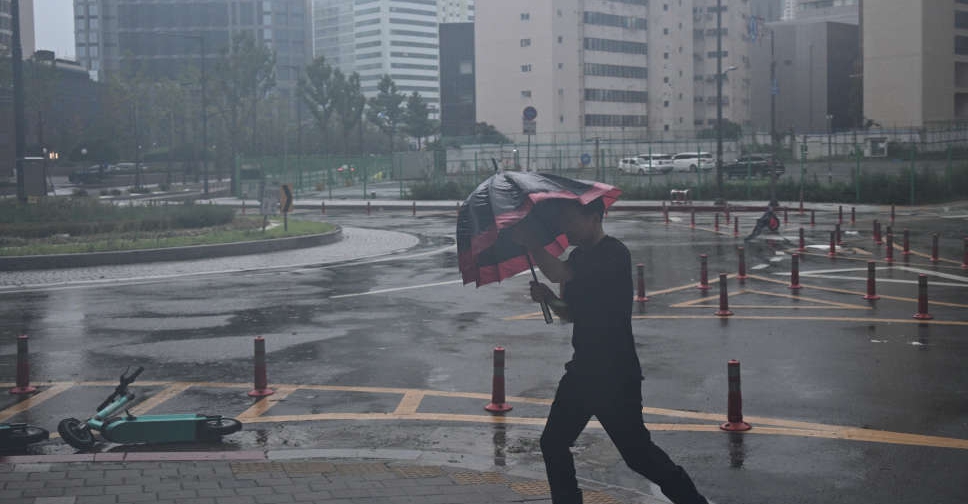
Heavy downpours continued to soak South and North Korea on Friday as tropical storm Khanun swept over the peninsula after pummelling Japan, putting Pyongyang on high alert for flood damage.
The storm weakened into a tropical depression as it crossed into North Korea overnight, and military and ruling party officials were mobilised to minimise its impact on the country's fragile economy.
In some parts of South Korea, cumulative rainfall has topped 400 mm since Thursday with maximum wind speeds of 126 km per hour, flooding villages, schools and roads.
Almost 16,000 people were evacuated, but about 60 per cent of them had returned home as of 6:00 am (2155 GMT Thursday), and about 350 flights and 450 train routes were cancelled, according to the interior ministry.
One person was missing in the southeastern city of Daegu after falling into a river in a wheelchair, and another person was reported dead in the same city, but the ministry said neither case was directly linked to the storm.
The 37,000 youngsters participating in the World Scout Jamboree, who moved out of their campsite over typhoon concerns on Tuesday, are scheduled to wrap up their trip with a K-pop concert on Friday.
"We need to prepare measures to quickly and sufficiently provide support to people affected by the typhoon and meticulous support to minimise inconvenience for evacuated residents," President Yoon Suk Yeol told officials, according to his office.
With a lack of infrastructure and deforestation exacerbating flood risks, North Korea has been bracing for the storm, scrambling to head off damage and salvage crops.
The Rodong Sinmun, the ruling Workers' Party's mouthpiece, reported on Friday that officials were ordered to implement a round-the-clock disaster emergency response system and devise evacuation plans.
It published photos of officials in raincoats inspecting ports and rivers and farmers preparing fields.
"We must make utmost efforts to protect farmlands and crops from the impact of typhoons," the newspaper said.



 Trump fires National Security Agency director
Trump fires National Security Agency director
 Israel steps up Syria strikes, says Turkey aims for 'protectorate'
Israel steps up Syria strikes, says Turkey aims for 'protectorate'
 US sending Israel 20,000 assault rifles that Biden delayed
US sending Israel 20,000 assault rifles that Biden delayed
 Israel says it killed a Hamas commander in Lebanon
Israel says it killed a Hamas commander in Lebanon



